- Americans are pessimistic on the economy, with rising costs top of mind and seen as a “major crisis” by most.
- But, Americans blame the pandemic more than government spending and find messaging linking rising prices to corporate greed particularly convincing.
- A range of positive economic indicators get mixed responses on whether they show the economy is improving or not, but after reading them, Americans view the economy more positively than they did before.
Seven in Ten Continue to Say the Economy Is “Not So Good” or “Poor,” and a Consistent Majority Say It Is “Getting Worse”
Among independents, 76% say the economy is “not so good” or “poor,” and 57% say it is getting worse.
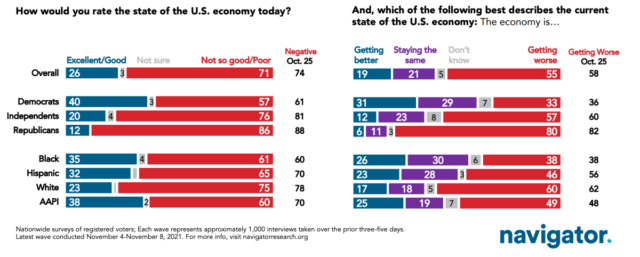
Inflation and Rising Prices Are Top Reasons Americans Across Partisanship Say the Economy Is “Not So Good” or “Poor”
Across partisanship, Americans bring up rising costs and inflation. Democrats talk more about “rising prices” and focus on wage stagnation and people not being paid enough; Republicans talk more about “inflation” and bring up government spending by Biden, how government programs are disincentivizing work, and the cost of gas.
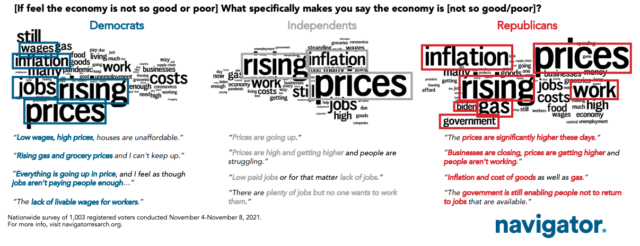
Americans Are Increasingly “Very Concerned” About Inflation, and Main Concerns Remain Groceries, Gas, and Housing
There has been a 17-point increase in the share who say they are “very concerned” about the rate of inflation since late June, including a 20-point increase among Democrats (31% to 51%).
- As was the case in June, top concerns on inflation are groceries (89%) and gas (82%), followed by housing (45%).
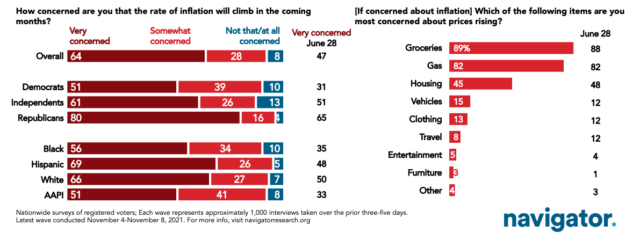
A Majority of Americans Continue to Call the Cost of Everyday Goods a “Major Crisis”
Since late September, there has been a 17-point increase in the share who say the cost of groceries and gas is a “major crisis.” Nine in ten Americans overall (90%) say it is a “major crisis” or “major problem.”
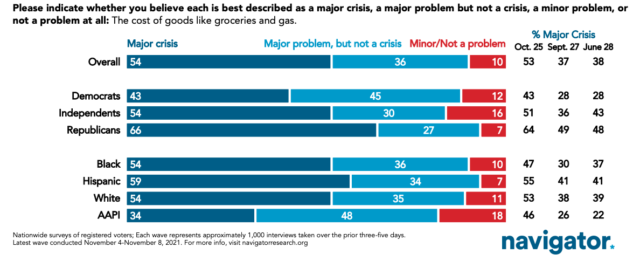
A Growing and Overwhelming Majority Say the Costs of Everyday Goods Like Groceries Are Going Up “Significantly”
There has been a 14-point increase in the share who say the costs of everyday goods are going up a “significant amount” since late June.
- Across partisan, racial, and ethnic groups, at least seven in ten believe these costs are going up “significantly.”
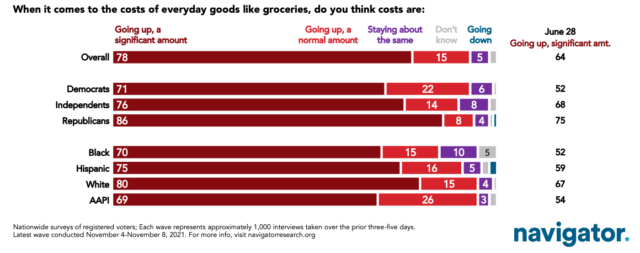
A Majority Blame the Pandemic More Than Government Spending for Rising Costs and Inflation
Half of independents (50%) and one in five Republicans (21%) blame the pandemic more than Biden and Congress.
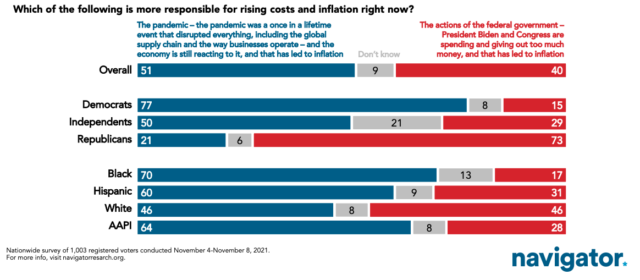
Economically Persuadable Americans See Corporate Greed As the Most Convincing Explanation for Rising Costs
Among persuadables, corporations squeezing consumers and artificially driving up costs due to the pandemic recovery is seen as the most convincing lane (+44 net convincing).
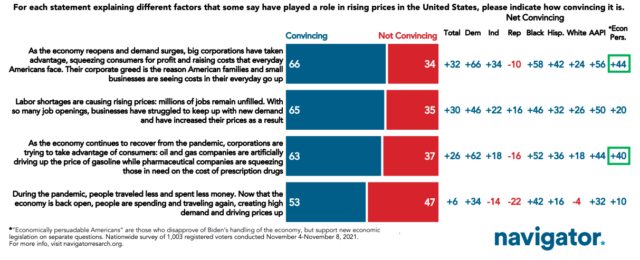
More Optimism Exists Around Range of Economic Metrics Than the Direction of the National Economy as a Whole
More independents say job openings, wages, consumer spending, unemployment, the stock market, GDP, and the supply chain are headed in the right direction than feel the national economy as a whole is in a positive state.
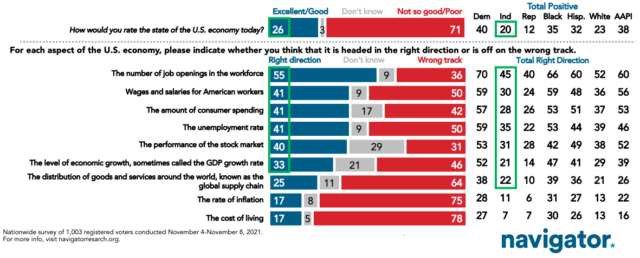
Americans Are Skeptical of Evidence the Economy Is Improving, But Are Most Persuaded By Growth & Low Unemployment
Top metrics among economically persuadable Americans are GDP growth, unemployment rates, and jobless claims.
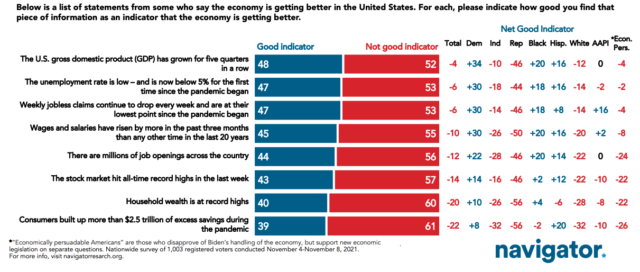
But, Seeing These Positive Indicators on the Economy Improves Views of the Economy Significantly Across Groups
Before any positive messaging on the state of the U.S. economy, net positive ratings of the national economy start at -45. After seeing positive metrics about the economy, these ratings improve by 27 points to net -18.
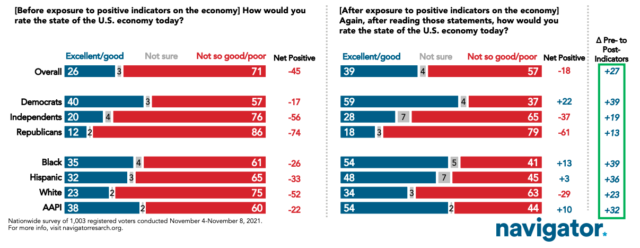
About The Study
This release features findings from a national online survey of 1,003 registered voters conducted November 4-8, 2021. Additional interviews were conducted among 100 Hispanic voters, 100 African American voters, 100 independents without a partisan lean, and 78 Asian American and Pacific Islander voters.

